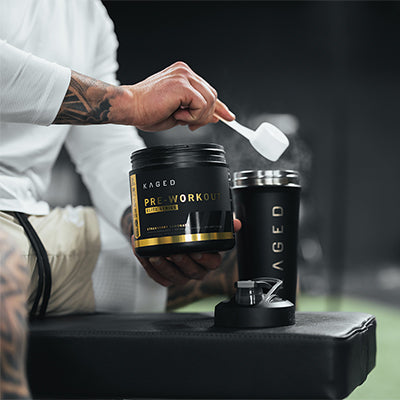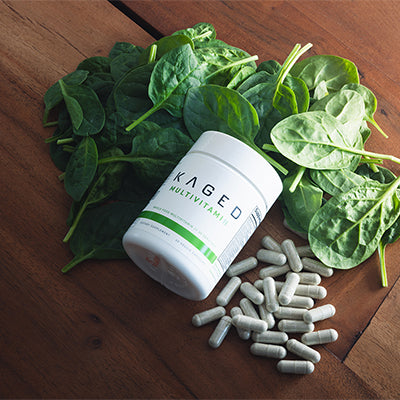If you ask anyone who is working on improving their physique what the most important factor is, the answer would be nutrition. Yes, training is a critical part of the plan, but it only accounts for an hour or two of your day. On the other hand, the average person makes at least 200 food-related decisions a day throughout the remaining 22 hours. What, when, where, and how much to eat are decisions you make, whether or not you pay full attention to it.
For those on a meal plan, most of these decisions are laid out for you, making things substantially easier. However, you may still find it difficult to juggle your daily responsibilities and hit your macros perfectly, especially towards the end of the week and over the weekend. To help you stay on track, here are five nutrition tips you can use which will make eating on plan so much easier.
1. Shop For The Week
Knowing what you’re going to eat for the week is one step, but ensuring that you have access to the food is necessary. Save yourself time (and money) by shopping once per week and ensure your kitchen is stocked with enough food to get you from Monday to Sunday. If you’re worried about food safety, we have a solution for that– see tip number two.
Take the time on the weekend to figure out how much food you eat per day and then multiply it by seven. This doesn’t mean you have to eat the same thing for every meal, every day of the week either. Factor in variety by including at least three different protein sources each day, two different carbs, and an assortment of vegetables.
Ensuring that you have enough food to get you through the week is a surefire way to keep you out of the drive-thru line. Additionally, shopping once per week will save you time by cutting back on the trips you make to the store. It will also save your wallet. Let’s face it, when you go to the store, you often end up buying items which aren’t on your list. If you do this three or four times per week, the cost quickly adds up.
2. Cook In Bulk and Portion
Now that you’ve stocked your fridge with everything you need for the week, you need to make sure it will last – especially proteins. Generally, cooking protein requires the most time. You can maximize cooking time by using a variety of methods such as baking, barbequing, and using a crock pot.
If you were to cook a little every day, it would quickly add up to 7 – 10 hours over the course of the week. On the other hand, if you set aside a couple of hours one day to cook everything, it may total 2 – 3 hours – which is a significant difference.
Once cooked and cooled, portion everything into your individual meal servings in meal containers or Ziploc bags. For food safety, keep three days of meals in the fridge and store the rest in the freezer. When you hit day three, you can pull the next three days out of the freezer. The advantage to this method is that everything is cooked and ready to go, you only need to let it thaw or heat it up – not worry about cooking anything.
3. Frozen Is Good
Shopping for the week may seem impossible when it comes to produce, as many items will spoil before the week is up. The tip here is to head to the freezer section of your grocery store. Frozen vegetables and fruit have the same nutrient profiles as fresh items, in some cases they’re even better for you as they’ve been flash frozen as soon as they’ve been picked.
Generally, fresh produce has to travel a fair distance before reaching your store, cutting down on its shelf-life. On the other hand, frozen items will last as long as you need them without going bad. An additional benefit to frozen vegetables – packing them in your meal the night before acts as an ice pack, keeping your food cold throughout the day.
4. Keep Convenience Items On Hand
Sometimes it’s just not possible to stop what you’re doing to eat. Maybe you’re in the middle of an important board meeting, giving a presentation, or at a medical appointment, whatever the reason, reaching for your meal and utensils just isn’t going to happen. In these cases, it’s helpful to have a more convenient option on hand.
Clean Meal shakes are a great option for these times. In some cases, you may be able to drink it at your regular meal time. If not, it’s a fast option to get your nutrients in as soon as possible. They’re also easily portable, allowing you to keep one packed in your bag if you’re running errands or on the road traveling. All you need to do is add some water, shake it up, and drink.
Another tip is to keep non-perishable options with you at work. Canned tuna, rice cakes, a small jar of nut butter, and a trail mix with dried fruit and nuts are all healthy items you can easily reach for if you find yourself unable to have a full meal. You can also keep a quality protein supplement on hand like RE-KAGED or KASEIN.
5. Live In The Future
The phrase, “Failing to plan is planning to fail” is entirely true. To make sure you get through your week without any hitches, live in the future. On Sunday evening, take a few minutes to look at your schedule for the week and see if there’s anything which will throw off your usual habits. Perhaps there’s a PTA meeting on Tuesday evening and a newly scheduled hockey game on Thursday night. Being aware of these things in advance will allow you to plan for them.
If you know that an evening is going to be hectic, you can pack extra meals for the day to have with you. Or, you can pack two sets of meals the day before to alleviate an evening task which you won’t have time for. Taking the time to look ahead at your week will allow you to be prepared for busy days which have the tendency to throw people off track.
Applying these five nutrition-focused tips into your prep will help ensure you’re able to consistently hit your macros and fuel your body as needed. If meal prep is new to you, start with just one or two of these tips, and gradually add more as you get comfortable with them. After implementing these tips for a couple of weeks, they’ll get easier, take even less time, and become habit, and you’ll be well on your way to hitting your health and physique goals.

























